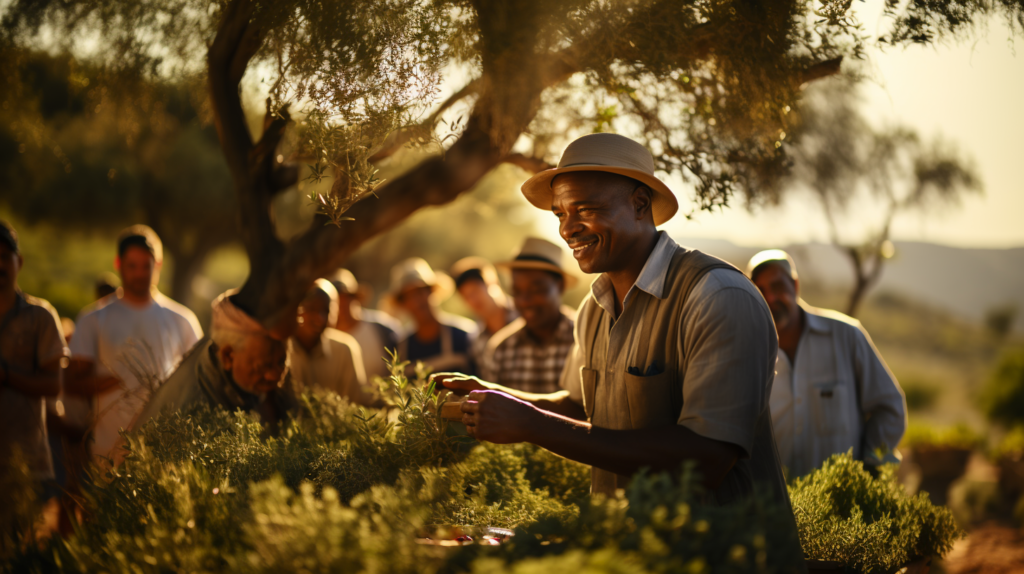The Cearitis Network
This year we are launching a local support network. It brings together around fifteen olive growers around the Alpilles and Durance rivers, as well as experts from the agricultural world.
The aim of the network is to provide participants with a shared analysis for assessing the sustainability of their production and identifying the levers for agro-ecological transition on a case-by-case basis. This year, the database will be populated with orchard diagnostics (tree health, pest management, soil life and water management) and annual economic results. In particular, it will enable comparisons to be made of sustainability results and encourage exchanges on alternative practices.
The 2022 Network, Assessing the sustainability of production
The creation of the Cearitis Network has made it possible to set up various protocols for assessing the sustainability of orchards.
Initially, the protocols set up by our agricultural engineer enable us to assess the regulation of the main olive-growing pests (olive fly, olive moth, peacock’s eye, etc.). Our partners also offer their expertise to assess soil health and water management. Finally, CEARITIS analyses the economic profitability of harvests and the production system to obtain a complete diagnosis combining the health of the orchard and the benefits derived from harvests.
These field observations are used to build a database covering the 3 pillars of sustainability (economic, social and environmental) from a network of varied practices. This data is collected and analysed for each plot in the network by CEARITIS experts and partners.
– Ecological; Soil health (biological fertility and level of resilience), water management and pest management, are elements of the ecological sustainability of orchards.
<– Agronomic; A study of yield components and crop quality.
– Profitability; Collecting data on cultivation practices, estimating crop losses and production costs.
With the creation of the Réseau Oléicole 2022, we are pooling data from across the sector and promoting exchanges on the practices and techniques specific to each producer. We will be supplementing this comprehensive diagnosis with agro-ecological support based on technical monitoring, production system design and evaluation.
To sum up, setting up our network will enable us to:
– Define protocols and an analysis method for a complete sustainability diagnosis of olive production, in order to refine our expertise and propose to the Réseau 2023, a support offer towards agroecology. You can find the offer on this page: Cearitis agro-ecological diagnosis
– Identify the main arboricultural problems and the appropriate and complementary agroecological solutions.
The objectives of the 2023 Network
The key feature of this network is that CEARITIS technicians provide support to each member in the sustainable management of their problems. This support is divided into three parts: sustainability analysis, interpretation report and co-design. During these three stages, the entire orchard ecosystem is studied in order to integrate the agro-ecological solutions best suited to each member’s needs, and these solutions are grouped together in a catalogue that will be proposed as part of the co-design process.
To encourage exchanges between Network members and strengthen the relationship between experts and olive growers, a number of training courses, workshops and visits will be organised around the areas of expertise of CEARITIS and its partners.
From 2023 onwards, the evaluation of the agroecological systems that have been co-designed and the arrival of new members will enable the database to be expanded and will reinforce the value of networking to support the move towards agroecology in arboriculture. This will be the creation of the first arboricultural database on sustainability results directly from member producers, based on the combined evaluation of soil and water management, plant health and profitability.
For more information, contact us on our contact form
